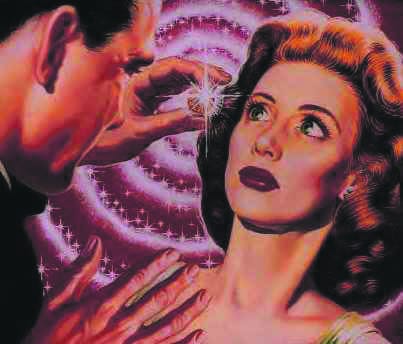Is hypnosis all it’s hyped up to be?
Royal Society Medicine backs use of hypnosis in the NHS

“It got to the stage of desperation, I tried GPs, neurologists, psychiatrists and other types of psychotherapists... it was purely because I was out of any other choices that I tried it.”
‘It’ was medical hypnosis and it reduced Timothy Ellison’s weekly migraines to monthly mild headaches. Timothy had to seek private help because, although hypnosis has been practiced for a long time in the private sector, it has never been offered by the NHS.
This may all be about to change. On the 6th of June, recommendations made by the Royal Society of Medicine’s Hypnosis Section stated that “The NHS could save millions of pounds if it made better use of hypnosis for a wide range of common conditions.” The hypnosis they talk about is completely devoid of the swinging watches and semi-magical qualities of myth. Instead it sounds like any other medical tool - sharp, efficient and precise.
It is a tool that is able to help people with depression, irritable bowel syndrome and chronic pain that other more conventional methods can’t treat.
Yolanda Rengifo Aguirre, the psychotherapist that treated Timothy’s condition, says: “In my experience, therapy in the trance reaches parts of the patients that other psychotherapies do not reach. It is effective in changing the clockwork of the mind, such as the subconscious inner patterns of being in the world that make us ill and distressed.”
Yolanda used clinical hypnosis to “show Timothy the origin and maintaining factors of severe psychogenic migraine headaches. Hypnosis can be effective in working to resolve and heal any trauma or inner psychological conflict that could be subconsciously triggering it.”
Timothy said: “Hypnosis helped me in discovering why I had migraines. It helped me respond to stress in a way that was not self-harming, by noticing the early signs in my body as a warning device. These signs tell me to relax instantly and so avoid triggering the migraine.”
Clinical hypnosis therefore gives insights into psychosomatic conditions that other techniques simply cannot do. In its ability to find subconscious causes, hypnosis is effective in treating anxiety induced disorders from panic attacks to insomnia. Hypnosis can also be used as a tool to help treat more complicated cases of psychological distress such as anorexia and bulimia: “They learn why they behave in a particular manner and how to change their responses before they occur. These are the responses that were automatic or compulsive in the past, that’s why I use clinical hypnosis extensively in the effective treatment of eating disorders,” says Yolanda. The pinpointing of these mental habits is part of what makes medical hypnosis so effective in cutting the recovery time in many of these cases.
But if medical hypnosis is so effective why haven’t we heard more about it? The problem is that it is currently only done privately and when done by a fully trained psychologist, as it has to be, it is extremely expensive - often up to £100 an hour. As Timothy said: “Hypnosis changed my life. I think it could benefit a great number of people. I am sorry for the people that cannot afford treatment and are suffering as I suffered.” Putting it on the NHS would bring medical hypnosis onto the radar of people have run out of choices, giving people like Timothy another chance.








